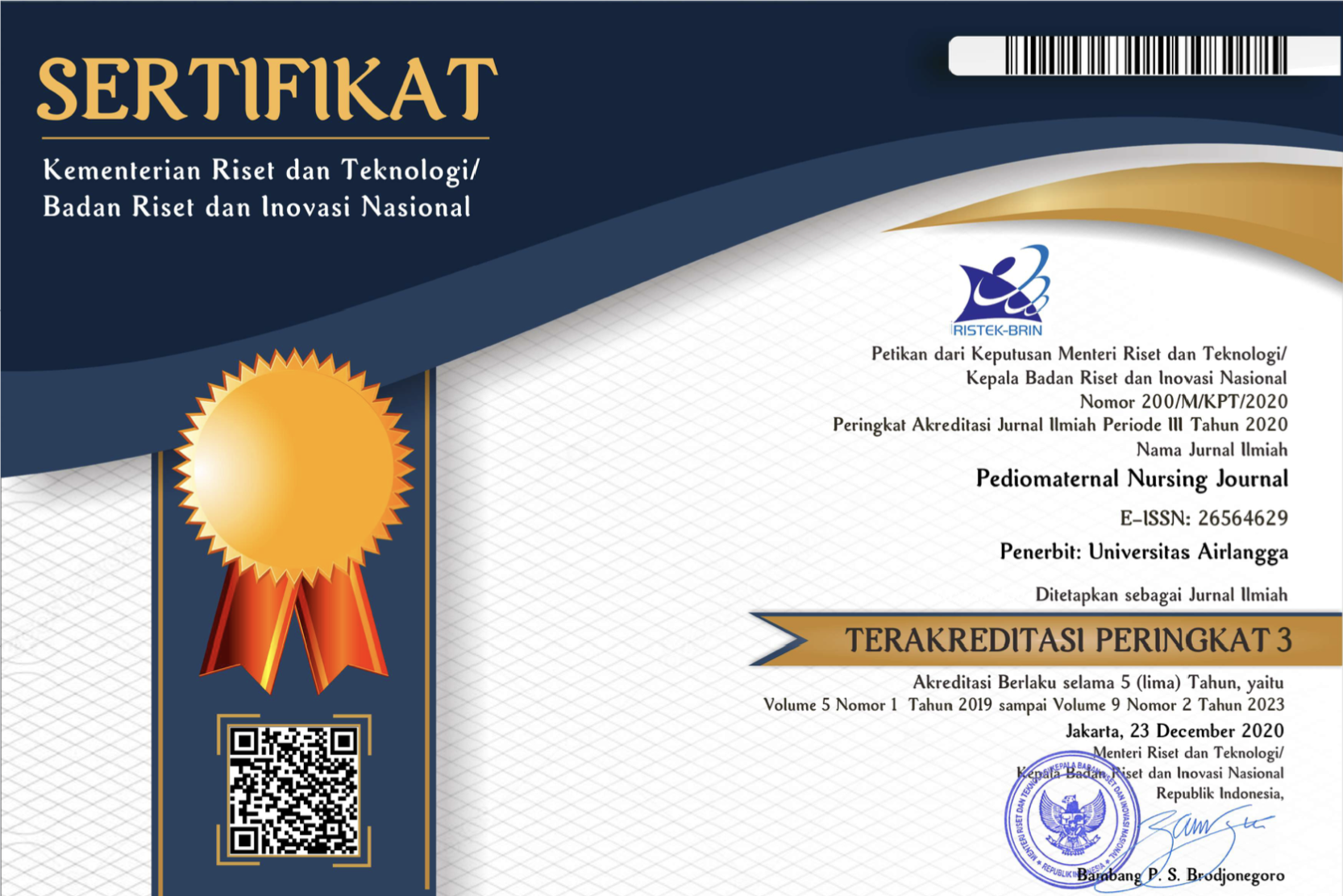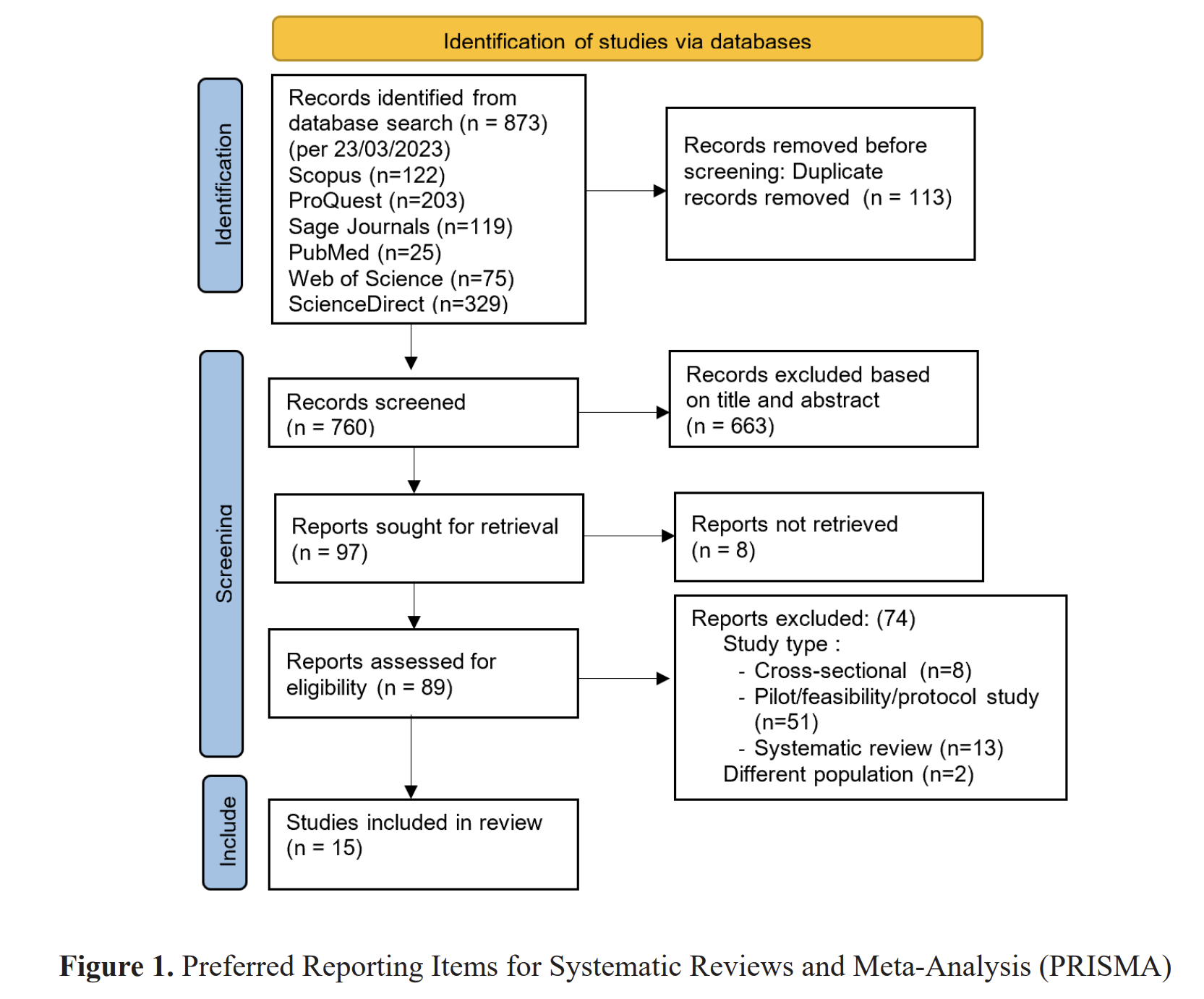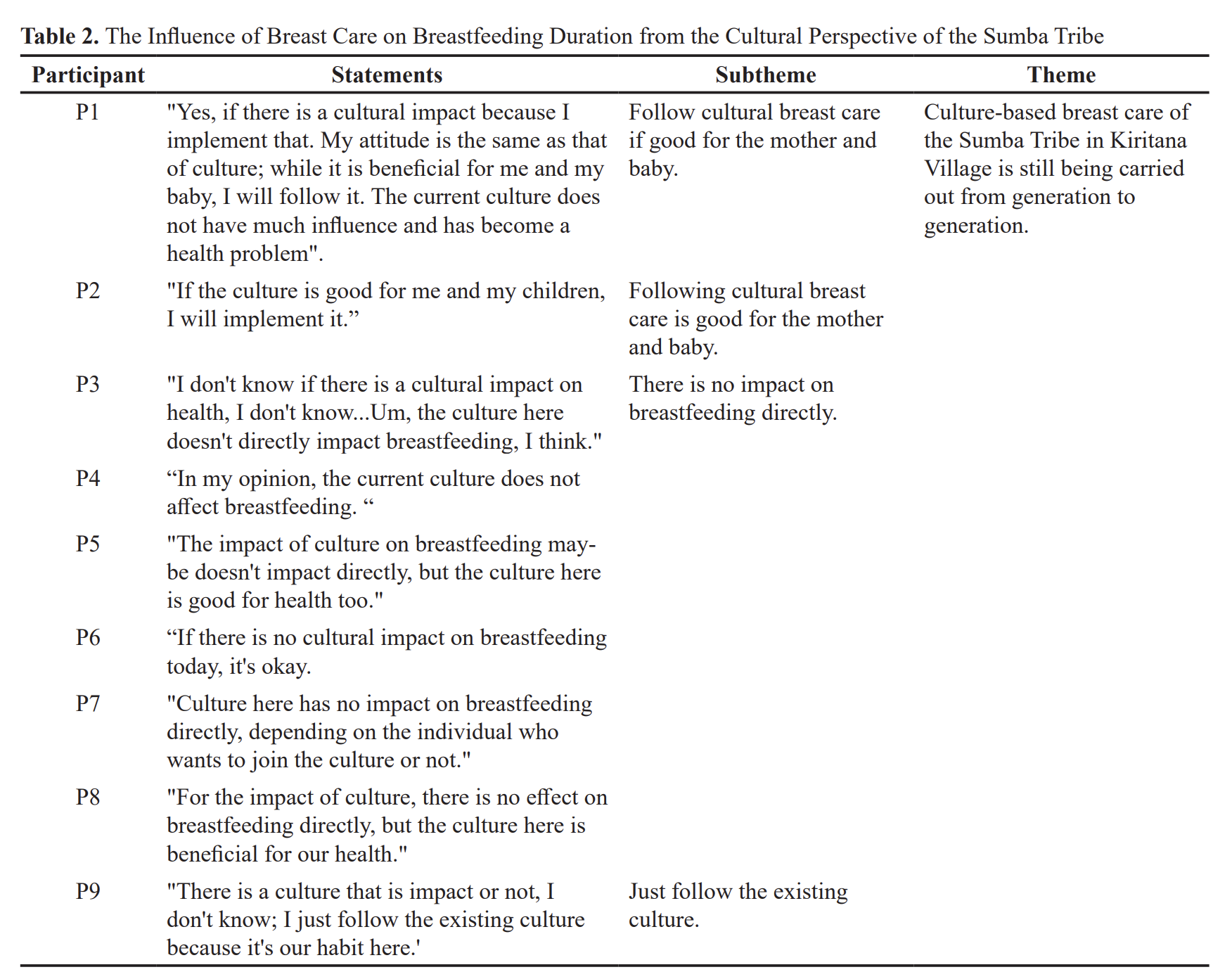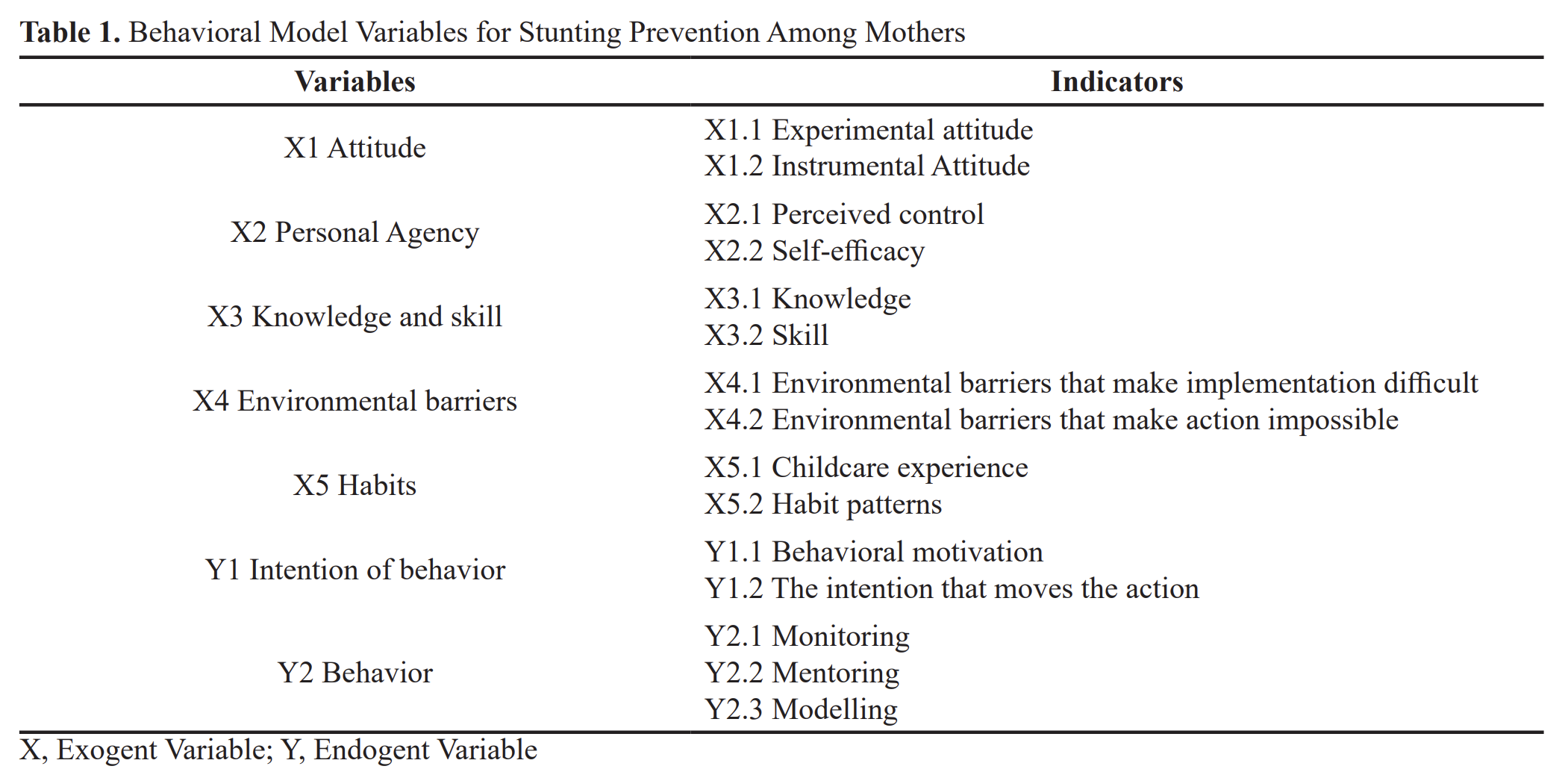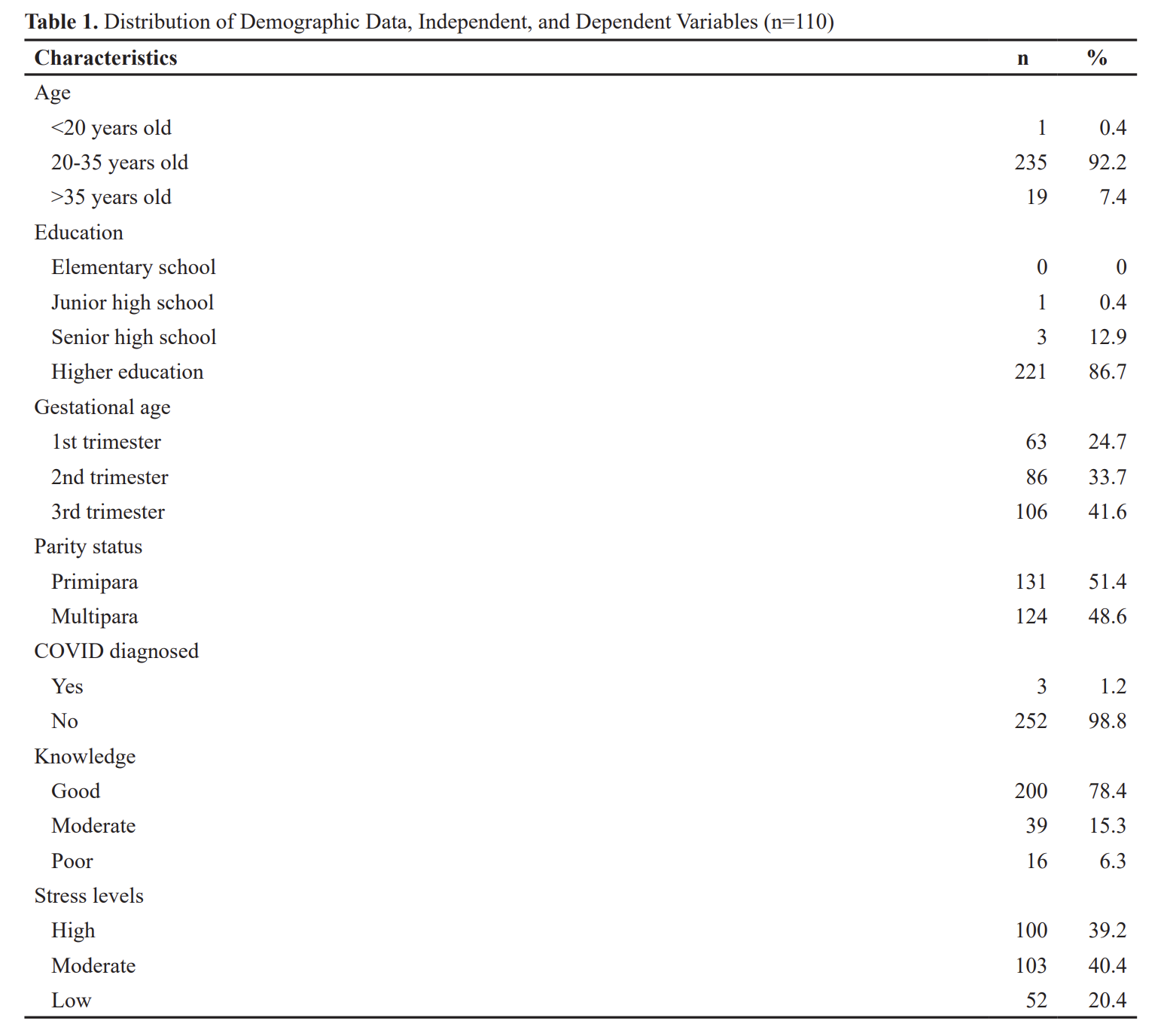The low-birth-weight infants' nutritional status related factors based on maternal characteristics in agricultural areas

Downloads
Introduction: Low birth weight (LBW) infants are vulnerable to health problems that impact growth and development. However, mothers as primary caregivers may not be able to provide care optimally. Factors associated with maternal characteristics need to be analyzed to determine pediatric nursing interventions to improve LBW infant care. This study aims to analyze factors associated with the nutritional status of Low-Birth-Weight Infants (1-12 months) based on maternal characteristics in agricultural areas of Jember Regency.
Methods: The cross-sectional design study was conducted among infant and mother pairs by measuring nutritional status (Weight-for-Age) and distributing questionnaires on maternal characteristics such as age, education, parity, occupation, and responsive caregiving. Total sampling was collected in one of the agricultural areas of Jember that had a high LBW birthrate, resulting in 89 infant-mother pairs with a history of low-birth-weight births. Data collection on nutritional status and maternal demographics was obtained from the Maternal and Child Health Book, while responsive caregiving data was collected from questionnaires to mothers. The Spearman’s rank test analyzed the relationship between infant nutritional status and maternal characteristics.
Results: The majority of infants had a normal nutritional status (88%). The characteristics of mothers are mostly aged in early adulthood (95.6%), multiparous (62.9%), elementary school educated (37.1%), not working (87.6%), and responsive caregiving as low as almost as high (50.6%; 49.4%). The results of the study showed that mothers' age, education level, and occupation status were not related to LBW infant nutritional status. However, maternal parity and responsive caregiving were related to the nutritional status (P-value = < .001).
Conclusion: The pediatric nurse should play a crucial role as an infant care provider to enhance mothers’ empowerment in caring for LBW infants. The Responsive caregiving practice education could be an alternative pediatric nursing intervention to reduce LBW infant morbidity and mortality.
Keywords: low birth weight; nutritional status; pediatric nursing
Copyright (c) 2025 Ira Rahmawati, Desta Cahya Amartha, Nuning Dwi Merina, José Luis Llopis , Qori Ila Saidah

This work is licensed under a Creative Commons Attribution 4.0 International License.
1. The journal allows the author to hold the copyright of the article without restrictions.
2. The journal allows the author(s) to retain publishing rights without restrictions.
3. The legal formal aspect of journal publication accessibility refers to Creative Commons Attribution (CC BY).

